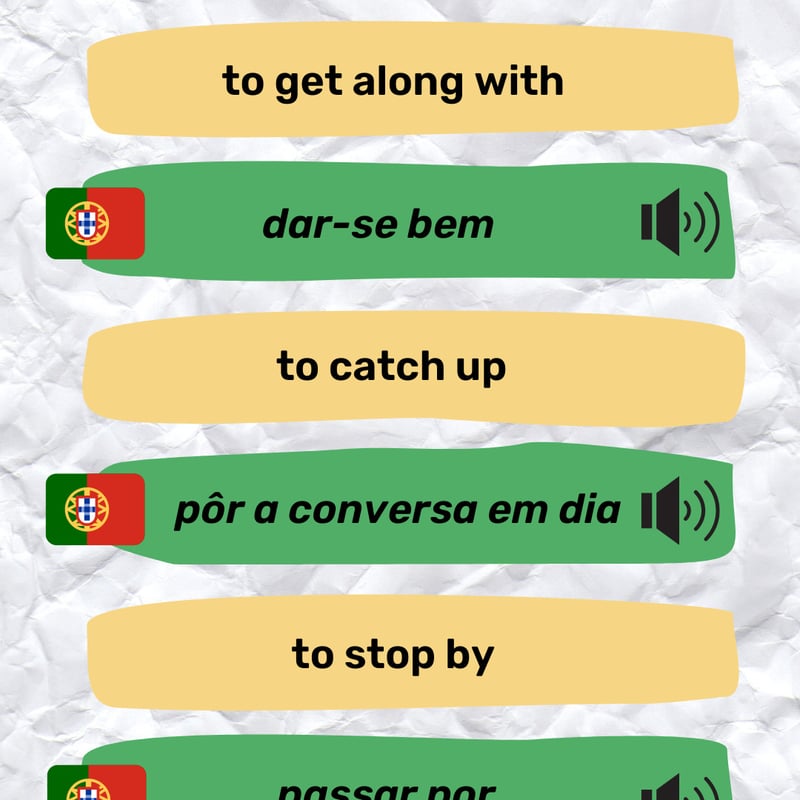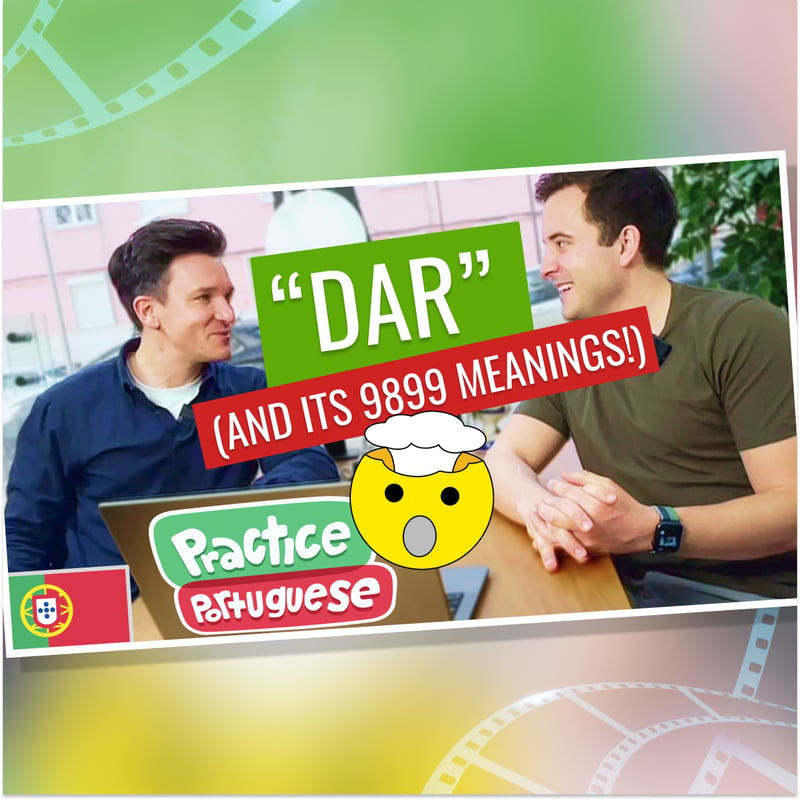Caught at a bus stop with a talkative stranger, Ana patiently contributes to the one-sided chat using simple comments that say “I’m listening”, without saying much at all. Coincidentally, this is also helpful for language learners who want to keep the conversation flowing, despite not having much to say yet… 😉
A Tagarela do Autocarro 44
The Chatterbox of Bus 44
English Expressions in Portuguese
One challenge of learning Portuguese, or any language, is that you can’t simply translate literally. Each language has its own conventions for how to word different concepts. This is known as idiomatic language. In this Learning Note, we’re focusing mostly on how to translate English “phrasal verbs” into Portuguese. (If you’re looking for other types […]
Liliana Precisa De Tempo
Liliana Needs Time
Liliana and Bruno discuss some problems in their relationship. Notice how the verb ficar is used in a variety of different ways throughout their conversation.
No Jogo Do Francisquinho
At Little Francisco's Game
Ana and Edmundo watch Francisco’s soccer game.
The Verb “Dar” And Its Many Meanings
Did you know the verb “dar” has at least 60 different meanings in Portuguese? 😱 The simplest translation is “to give”, but it also has many idiomatic meanings, which depend on the context. Today, Joel and Rui take a deep dive into “dar”, with some help from one of our Shorty episodes: Dar Uma Mãozinha. […]
Passa-se Cá um Briol
It's Very Cold in Here
Rodrigo complains to Adelaide about how cold their home is. Familiarize yourself with a number of reflexive verbs throughout the dialogue.
Demystifying the Word “Logo” in Portuguese
You may have come across the word logo in Portuguese and had trouble translating it. Logo is another of those Portuguese words that has several meanings… The word can mean “therefore”, it can mean “soon”, and (don’t hate us!) it can also mean “later”. 😳 Sometimes it does not have a clear translation in English, […]
Dar Uma Mãozinha
Lend A Little Hand
Helena decides to organize her storage closet. Notice how the verb “dar” is used in a variety of different expressions throughout the dialogue.
How to Use the Verb Andar
The simplest translation for the Portuguese verb andar is “to walk”, but the fun doesn’t stop there! Andar can take on many different meanings, depending on the context. As opposed to , which is pretty straightforward, refers more to the general act of moving, acting, or changing places. It can indicate that an action is […]
Passa-me o Berbequim
Hand Me The Drill
Explore the many different uses of the verb “passar” in this dialogue between Eurico and Vanessa.
Os Conselhos Do Daniel
Daniel's Advice
Hear how a number of Portuguese idioms are used in conversation as Sónia discusses her love life. Check out the Idioms 2 unit for more descriptions and practice with these expressions.
Sarilhos no Bar
Troubles at the Bar
Filipe tells Bruna the story about how he got a black eye, using many of the expressions you learned in the Idioms 1 unit.
Idiomatic Expressions 2
In this Learning Note we’re going to show you a few more Portuguese idioms. This expression literally means “you’re a head of spoiled garlic”, which means you are not very bright. Although originally meant for people who are easily distracted or forgetful, it has a become an endearing way of calling someone dumb. In the […]
Idiomatic Expressions 1
, or idioms, are expressions that you shouldn’t interpret literally. Portuguese idioms have a symbolic meaning, which is rarely maintained upon literal translation into other languages. These expressions reflect the customs and history of the country and are part of all conversations of the Portuguese, rich or poor, from North to South of Portugal. They […]



 Eliana
Eliana Joana
Joana

 Rui
Rui Sandra
Sandra

 Joel
Joel
 Natacha
Natacha Pedro
Pedro






